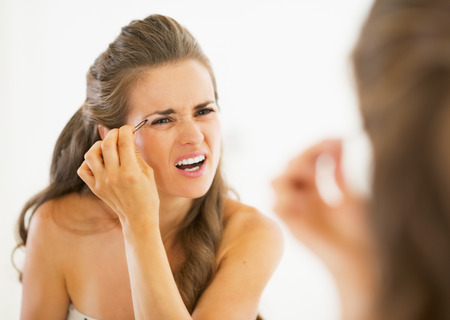The Science Behind Stress, Sleep, and Skin Aging
Ever wonder why your skin looks dull or tired after a few sleepless nights or a stressful week at work? It’s not just your imagination. There’s real science behind how stress and lack of sleep can speed up the aging process of your skin. Let’s break it down in a way that makes sense.
How Chronic Stress Impacts Your Skin
When you’re under constant stress, your body releases more of the hormone cortisol. While cortisol is helpful in small doses, too much of it can actually break down collagen and elastin—two proteins that keep your skin firm, smooth, and youthful. Over time, this leads to fine lines, wrinkles, and sagging skin. Plus, stress triggers inflammation in the body, which can make skin conditions like acne or eczema worse.
What Happens When You Don’t Get Enough Sleep?
Sleep is when your skin goes into repair mode. If you skimp on sleep, your body doesn’t have enough time to fix daily damage from pollution, sun exposure, or even makeup. This can result in puffy eyes, dark circles, and a dull complexion. Long-term sleep deprivation also increases inflammation and disrupts your natural skin barrier, making your face more prone to irritation and dehydration.
Key Biological Processes Involved
| Factor | What Happens | Impact on Skin |
|---|---|---|
| High Cortisol (from stress) | Breaks down collagen & elastin | Wrinkles, loss of firmness |
| Inflammation | Bodies respond to stress & lack of sleep by inflaming tissues | Redness, flare-ups of acne/eczema |
| Poor Sleep Quality | Lack of cell repair & regeneration | Dullness, dark circles, slow healing |
The Vicious Cycle: Stress, Sleep Loss & Skin Aging
If you’re stressed out, you might find it hard to fall asleep or stay asleep. But not getting enough rest can also make you feel more anxious the next day! This creates a cycle that keeps harming your skin over time. That’s why it’s so important to manage both stress and sleep for healthy-looking skin.
2. Common Signs of Premature Skin Aging
If you’ve ever noticed your skin looking older than you feel, you’re not alone. Stress and lack of sleep can speed up the aging process, making certain signs more obvious. Here are some of the most common signs to watch for—and how they connect to stress and sleep habits.
Fine Lines and Wrinkles
When your body is under stress or not getting enough rest, it produces more cortisol—a hormone that can break down collagen. Collagen keeps your skin smooth and firm, so when it’s reduced, fine lines and wrinkles start to show up earlier than you’d like.
Dull, Tired-Looking Skin
Ever wake up after a rough night and notice your skin looks less radiant? That’s because your skin repairs itself while you sleep. Without enough shut-eye, cell turnover slows down, leaving your complexion looking dull or even grayish. Stress can also slow blood flow to your skin, making you look tired and washed out.
Loss of Elasticity
Elasticity is what keeps your skin bouncy and youthful. With chronic stress and poor sleep, your skin loses its ability to “snap back.” This can make areas like your cheeks or jawline start to sag.
Telltale Signs Table
| Sign | Description | How Stress & Poor Sleep Affect It |
|---|---|---|
| Fine Lines & Wrinkles | Small creases around eyes, mouth, or forehead | Cortisol breaks down collagen faster; less repair overnight |
| Dull Skin | Lack of glow; tired appearance; uneven tone | Slower cell turnover; decreased blood flow from stress |
| Loss of Elasticity | Sagging in cheeks, jawline, or under eyes | Reduced skin repair leads to less firmness over time |
Other Early Warning Signs
- Puffy eyes or dark circles—often worse after stressful days or sleepless nights.
- Rough or flaky patches—stress can disrupt your skin’s moisture barrier.
- Increased breakouts—stress hormones can trigger oil production and inflammation.
Why Catching These Signs Early Matters
The sooner you recognize these changes, the sooner you can take steps to manage stress and improve your sleep. This helps slow down further aging and keeps your skin looking its best as you go about your busy life.

3. How Stress Alters Your Skin’s Health
The Role of Cortisol: Your Body’s Main Stress Hormone
When you’re feeling stressed out—maybe from work deadlines, family issues, or just the hustle and bustle of everyday life in America—your body releases a hormone called cortisol. While cortisol helps your body handle stress, too much of it for too long can take a toll on your skin.
How Stress Impacts Skin Barrier Function
Your skin barrier acts like a shield, locking in moisture and keeping out irritants. High levels of stress can weaken this barrier, making your skin more vulnerable to dryness, redness, and even breakouts. If you’ve noticed your skin feels rough or looks dull during stressful times, cortisol could be the culprit.
Effects of Cortisol on Skin
| Skin Aspect | Impact of High Cortisol |
|---|---|
| Barrier Function | Weakened protection, more sensitive to irritants |
| Hydration | Increased water loss leads to dryness and flakiness |
| Repair Process | Slower healing, longer recovery from acne or wounds |
| Aging Signs | Faster development of fine lines and wrinkles |
Stress and Skin Hydration
Cortisol doesn’t just affect how your skin protects itself—it also messes with hydration. When your stress levels are high, your skin loses more water, which means you might notice tightness, itching, or rough patches. This is why drinking plenty of water and using a good moisturizer is especially important when life gets stressful.
Slowed Skin Repair Under Stress
Your skin is always working to repair itself from daily damage—think sun exposure or minor cuts. But when you’re stressed, your body focuses its energy on dealing with that stress instead of helping your skin bounce back. This can lead to slower healing after breakouts or irritation and may make signs of aging like wrinkles show up faster.
Quick Tips for Managing Stress-Related Skin Issues:
- Practice relaxation techniques like meditation or deep breathing exercises.
- Stick to a consistent skincare routine with gentle cleansers and moisturizers.
- Get regular sleep to help balance stress hormones naturally.
- If possible, incorporate physical activity into your day—it’s great for both stress relief and healthy skin!
Understanding how stress affects your skin can help you make better choices for both your mind and your complexion. In the next section, we’ll look at how sleep plays a key role in keeping your skin looking youthful and vibrant.
4. Why Quality Sleep Matters for Youthful Skin
Getting a good night’s sleep does so much more than just help you feel rested—it’s actually one of the best things you can do for your skin! While you sleep, your body goes into “repair mode,” working hard to undo the damage from daily stress and environmental factors. Let’s break down why quality sleep is essential for keeping your skin looking young and healthy.
The Restorative Power of Sleep
When you sleep, your skin cells renew and repair themselves at a faster rate. This process is called cell turnover, and it’s key to maintaining a fresh, glowing complexion. Here’s what happens while you catch those Z’s:
| Skin Benefit | How Sleep Helps |
|---|---|
| Cell Turnover | Your skin produces new cells to replace old ones, helping to keep your face smooth and radiant. |
| Collagen Production | During deep sleep, your body boosts collagen production, which keeps your skin firm and reduces wrinkles. |
| Natural Repair | Sleep allows your skin to heal from daily exposure to sun, pollution, and stress, reducing visible signs of aging. |
The Science Behind Beauty Sleep
Research shows that people who consistently get enough high-quality sleep tend to have fewer fine lines, more even skin tone, and less puffiness around the eyes. Poor sleep, on the other hand, can lead to dull skin and make aging signs more noticeable. That’s because lack of sleep increases stress hormones like cortisol, which can break down collagen and slow down the skin’s repair process.
How Much Sleep Do You Really Need?
Most adults need about 7-9 hours of restful sleep each night for their bodies—and skin—to fully recover. If you’re not getting enough shut-eye, try setting a regular bedtime routine or limiting screen time before bed. Small changes can make a big difference in how your skin looks and feels!
Quick Tips for Better Beauty Sleep
- Create a calming bedtime ritual (like reading or listening to soft music)
- Keep your bedroom cool and dark
- Avoid caffeine or heavy meals close to bedtime
- Use a gentle moisturizer before bed to support overnight skin repair
Remember, quality sleep isn’t just about rest—it’s one of the most effective (and affordable!) ways to keep your skin looking youthful every day.
5. Practical Tips for Managing Stress and Improving Sleep
Simple Strategies for Everyday Life
Stress and lack of sleep can really take a toll on your skin, making it look tired, dull, or even older than you feel. The good news? You can take charge with some easy lifestyle changes. Here are practical tips to help you manage stress and get better sleep—so your skin stays healthy and glowing.
Mindfulness Practices
- Meditation: Spend just 5-10 minutes a day focusing on your breath. Try apps like Headspace or Calm to guide you.
- Deep Breathing: Inhale deeply through your nose, hold for a few seconds, and exhale slowly. Do this before bed or during stressful moments.
- Gratitude Journaling: Write down three things you’re thankful for every evening. This simple habit can shift your mindset and reduce stress.
Nighttime Routines That Work
- Consistent Bedtime: Go to bed and wake up at the same time every day—even on weekends—to help regulate your body clock.
- No Screens Before Bed: Turn off TVs, phones, and tablets at least 30 minutes before sleeping to help your brain wind down.
- Create a Relaxing Environment: Dim the lights, use calming scents like lavender, and keep your bedroom cool and quiet.
Sample Nighttime Routine
| Time | Activity |
|---|---|
| 8:30 PM | Take a warm shower or bath |
| 9:00 PM | Apply your skincare products (cleanser, moisturizer, etc.) |
| 9:15 PM | Read a book or journal (avoid screens) |
| 9:45 PM | Meditation or deep breathing exercises |
| 10:00 PM | Lights out—sleep time! |
Skincare Rituals That Support Youthful Skin
- Cleansing: Wash away dirt and makeup to let your skin breathe overnight.
- Moisturizing: Hydrate with a nourishing night cream that suits your skin type.
- Treatments: Use serums with ingredients like hyaluronic acid or retinol for added benefits against aging.
- Sunscreen in the Morning: Even if you’re mostly indoors, UV rays age skin. Make sunscreen part of your morning routine.
Your Action Plan at a Glance
| Goal | What to Try |
|---|---|
| Reduce Stress Daily | Meditation, deep breathing, gratitude journaling |
| Improve Sleep Quality | No screens before bed, relaxing bedtime routine |
| Nurture Your Skin | Cleansing, moisturizing, anti-aging treatments |
The key is consistency! By making these tips part of your daily life, you’ll not only feel better but also help keep your skin looking youthful and vibrant.


